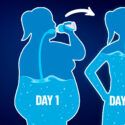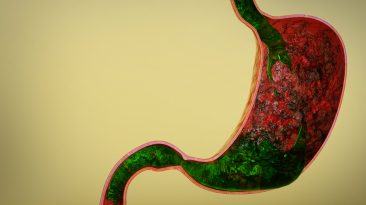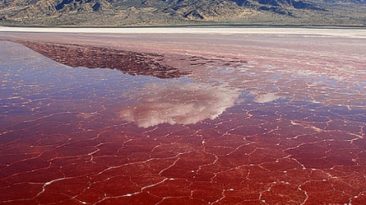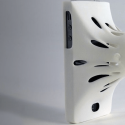We’ve all done this dance. Been uncomfortable. Squirming.
We’ve all been in a situation when we have to hold our bladder. Maybe you’re deeply concentrating on your work. Maybe you really don’t want to use that portable toilet, or maybe the driver on your road trip just hates to stop.
Imagine you’re in this condition for 7 days. How much liquid could your bladder actually hold?
How would it affect your other internal organs? What would happen if your bladder burst?
Your bladder plays a vital role in your body’s survival. This empty balloon-like muscle is part of your urinary tract, which also includes your kidneys.
Together, these organs remove toxins, and excess salts, sugars and proteins from the bloodstream, expelling them out of your body as urine. If you let your bladder fill, and then ignore its insistent signals that it’s time to visit the toilet, it will most likely empty itself…and that’s embarrassing!
But what if, somehow, you were able to control your bladder and not pee for a whole week? What would happen?
Let’s say you have a super-hero strength bladder, and decide to drive for thousands of miles without stopping. Not even for a single bathroom break.
By the end of the first day, you’ll be feeling pretty uncomfortable. Not only is your brain yelling at you to just go pee, but your bladder will be pressing against your other organs as it gets larger, and your abdomen will begin to swell – so much that your underwear and pants get too tight.
You also might have caused some serious damage to your kidneys, which is definitely not good for you. Your trapped urine is now flowing back into your kidneys via the ureters, allowing bacteria to colonize. At this point, a urinary tract infection might set in, causing pain and fever.
We are now in Day 2 of your crazy non-stop road trip, and you aren’t feeling too good. Your kidneys are starting to scar from sustained damage, and your pelvic-floor muscles are overextended.
As your trip continues, and you don’t pee, the acid in your body is now damaging other organs.
If you miraculously make it across the country without wetting yourself…you should probably visit the emergency room ASAP.
The average person pees 6 to 10 times a day, which means you have denied yourself 60 to 70 trips to the bathroom by the end of the week.
It would take several minutes to expel all that urine. But even after you pee, you’ll still be in pain. It takes some time for all those muscles to retract, and shrink back to their normal size.
What if you don’t make it to your destination in time? What if your bladder explodes on your drive? Well, you’d most likely contract sepsis from the toxins it releases, this could kill you.
So, maybe you should think twice before going on a long road trip without a single bathroom stop. Even holding your bladder for too long on a regular basis can harm it.
When a bladder, like a balloon, becomes over-inflated, it puckers after it’s emptied, weakening the muscle. A weakened bladder means that you won’t be able to empty all your urine in one go, leading to more frequent urination.
It’s almost physically impossible for you to hold your bladder to the point of literally bursting. But it has happened.
In the 16th Century, Danish astronomer, Tycho Brahe, refused to excuse himself from a royal banquet because he did not want to be rude. When he finally got home and tried to urinate, nothing came out. He became delirious, and then died from a burst bladder.
Our bladder isn’t something we think much about – until we need to empty it. But it’s important to understand how vital a role it plays in our complex bodies.
While our bladders are strong and can hold half a liter of urine (16 oz) for a considerable amount of time, we still need to take care of them by emptying them frequently.
Subscribe to What-If on YouTube or follow the show on Facebook Watch.
Sources
- “How Long Can You Go Without Peeing? Risks, Complications, Concerns”. Elaine K, (2020). Retrieved 16 March 2020.
- “The Urinary Tract & How It Works | NIDDK”. National Institute Of Diabetes And Digestive And Kidney Diseases.
- “Here’s What Happens To Your Body When You Hold In Your Pee”. Crew, Bec. 2020. Sciencealert.
- “What is Urine?”. urinecolors.com.
- “Is it safe to hold your pee? Five possible complications”. 2020. medicalnewstoday.com.
- “Kidney Infection – Symptoms And Causes”. 2020. Mayo Clinic.
- “Does How Hard You Pee Matter?”. Fiouzi, Andrew. 2018. MEL Magazine.
- “Kidney infection – Symptoms And Causes”. 2020. Mayo Clinic.



























